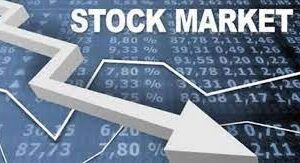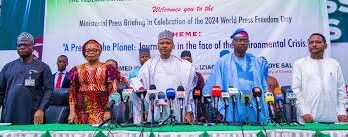The nation’s equity market witnessed a growth trend in 2023 despite a slowdown in economic activities due to scarcity of funds, petrol subsidy removal among others. AMAKA IFEAKANDU looks at factors that contributed to the growth of the market, challenges and expectations for the market as 2024 beckons.
Market growth trend
The nation’s equity market has recorded a significant growth in 2023 financial year despite problems of insecurity, inflation, harsh operating environment and the removal of fuel subsidy which impacted negatively on the economic activities during the year.
The market which was confronted with the problem of scarcity of funds in the first quarter of the year as a result of the new naira policy introduced by the Central Bank of Nigeria closed the year on a positive trend, gaining 45.89 per cent at close of transaction on December 29, 2023.
The NGX All Share index appreciated by 23,522.71 basis points to close the year at 74773.77 points against 51251.06 points it opened for the year.
The market capitalisation of listed equities within the same period gained N13.002 trillion or 46.58 per cent to close the year at N40.917 trillion compared with N27.915 trillion it opened in January this year.
Quarterly performance
A review of the transactions during the year showed that in the first quarter of the year the market took positive direction, gaining N1.628 trillion, representing 5.83 per cent growth to N29.543 trillion against N27.915 trillion it opened for the year while the All Share index also up by 2981.26 basis points or 5.81 per cent to 54232.26 points at the end of quarter.
The market sustained an upward trend in the second quarter of the year ending June, growing by N3.654 trillion or 12.37 per cent to close at N33.197 trillion from N29.543 it opened in the beginning of April 2023.
In the same vein, the NGX ASI appreciated by 6736.01 basis points or 12.42 per cent to 60967.27 points from the level traded the preceding quarter.
In the third quarter, the market remained in an upward direction, appreciating by N3.134 trillion, indicating an increase of 9.44 per cent to close at N36.331 trillion from N33.197 trillion it opened for the quarter while ASI also appreciated by 5413.87 basis points to 66382.14 points from 60968.27 points it opened for the quarter.
In the fourth quarter the market sustained growth profile, appreciating by N4.586 trillion or 12.62 per cent to N40.917 trillion on December 29, 2023 from N36.331 trillion it opened for the quarter while the NSE ASI remained in positive trend, reporting 83916.63 basis points to 74773.77 points from 66382.14 points it opened at the beginning of fourth quarter.
Operators’ views
Capital market Operators said that the sustained growth in the market was a result of the President Bola Ahmed Tinubu pronouncement on the nation’s new economic policy.
They also argued that though the removal of fuel subsidy helped to some an extent to increase the price of food stuff, transport fare but the unification of exchange rate, review of all anti-investment and multiple taxation policies and government plan to focus on infrastructure development to create jobs impacted positively on every sector of the economy, including capital market.
They described the government’s target to invest in the infrastructure as a step that will open doors for the return of foreign investment in the country and capital market in general.
Reviewing the performance of the capital market, Chief Research Officer, Investdata Consulting Limited, Mr Ambrose Ormodion said there are numerous factors behind the performance of the stock market in 2023.
He said the good performance of quoted companies on the floor of Nigerian Exchange (NGX) in 2023 in terms of numbers and management of the company calls for more investment in the market.
He said the company results that came across the sector within the period were very impressive and supportive to the market.
He said that increase in market activities such as issuance of right issues and listing of new companies among others contributed to the performance of the market during the year.
He said that the high traded volume and positive sentiment during the year reflected the buying interests by majority shareholders and activities of institutional investors as they sought to hedge against inflation on a mixed outlook for fixed income rates and yields.
He said the alternative market yield such as fixed income market , bond market and treasury Bills which are below inflation provide more opportunity for funds to continue to flow into the capital market starting from the month of May to the end of the year.
Omordion said the exit of foreign investors from the nation’s equity market during Covid-19 created room for local investors to dominate the market.
The domestic investors’ dominance in the market, according to him, provides opportunity for stability and growth, adding that the exit of foreign investors at any slightest challenges in any economy creates panic in the system resulting in sale off and offloading of shares in the market, leading to depreciation in the market index.
“Since post COVID 19, the equity market witnessed less participation of foreign investors and this has helped to sustain growth of the market even during the election period. So exit of foreign investors always comes with sale off and depreciation in the prices of stocks and all these impact negatively on the stocks market.”
He said another factor that encouraged local investors to continue to play in the stocks market despite the nation’s economic hardship was the political campaign messages from all the political parties tilted towards economic reforms and subsidy removal.
He said such campaigns gave average local investors hope and strong confidence that investing in the capital market will bring bountiful returns on their investment at the end of the day.
In his own contribution, the managing director APT Security and Funds Limited, Malam Garba Kurfi said the speech presented by President Bola Ahmed Tinubu during inauguration contributed to the performance of the Capital market.
He said the removal of fuel subsidies pushed the prices of Petroleum Marketing stocks to keep rising and other stocks in anticipation of reaping higher returns at the end of year.
He, however, said that the withdrawal of foreign investors who fell from 51 per cent participation to about 13 per cent from the market due to lack of access to forex reduced market liquidity.
A financial analyst Mr Chukwuma Odigbo while reviewing the stock market in 2023 financial year said the nation’s Capital market performed extremely well in the 2023 financial year as ASI closed with over 45.8 per cent.
He said sudden growth recorded in the market within the year has to do with the participation of the Institutional Investors especially PFAs that have increased their investment in order to hedge against inflation, adding that the retail Investors have followed the same direction.
He said the rising inflation to above 27 per cent pushed Investors to look for Investment that is inflation hedging.
He explained that the penny stocks look much better in the reviewing period as many investors diverted their Investment in small and medium stocks.
Odigbo stated that the implementation of the President Tinubu new policy especially effort in unifying Exchange rate, reduce interest rate, fight insecurity in the system and raise GDP to six per cent expected to boost activities in the market in future
Challenges
On the major challenges confronting the market in 2023, Omordion said anywhere in the world what shape the market is in the policy direction of the country.
He said the monetary policy on the issue of the exchange rate has put many sectors of the economy, especially manufacturing, financial sectors, in turmoil because of the high cost of importation of goods.
He said most companies in the country depend so much on importation for all their raw materials and equipment, all of which contributed to the high cost of production in the country.
He said the monetary policy of the Central Bank of Nigeria seems to have not helped matters, stressing that the inability of the apex bank to meet up with forex demand pressure has affected business activities across the country.
He said the nation’s currency – the naira exchanging at the rate above N1000 to a dollar is not good for the capital market and economy in general.
Kurfi said that one of the challenges experienced in the market during the year were the delisting of major players such as UBN, Ardova, IEI, plus the declaration of intention to get delisted by GLAXOSMITHK, PZ, among others. He said all this impacted negatively on the growth of the capital market within the year.
Projection
Making projections into the new year, Kurfi said that the nation’s equity will sustain a growth profile in the 2024 financial year, adding that in four consecutive years since 2020 the market has been closing in a positive trend.
He said that increase in Primary Issues in the market especially in the financial service sectors particularly Banking sector in 2024 will help banks to meet up with its new recapitalisation position.
He said operators are expecting to see new companies get listed in view of the facts that those listed recently performed well within the year. For instance he said the few companies that got listed such as Buafoods recorded growth as its share price increased from N40.00 to almost N200, Geregu moved from N100.00 to N390.00 and Mecure appreciated from N2.95 per share to N12.00. He said if more companies get listed it would help to increase market activities.
Omordion on the other hand said that market performance in 2024 will be mixed on the grounds that we do not know the policy direction of both the fiscal and monetary policy for the current year.
“We have not known fiscal policy in terms of new taxation and the issue on infrastructure etc and we do not know monetary policy in terms of interest rate, exchange rate management and price stability, all these policies will help to shape the economy and also have impact on the market directly or indirectly.”
Odigbo on the other hand, predicted positive momentum for the Nigerian stock market.
He said from the 2024 budget proposal presented by President Bola Tinubu total reliance has been placed on the use of private capital in funding some important developmental projects across the country.
With this he said that we are going to have more companies get listed on the stock exchange for the purpose of raising new capital, and these will boost market activities and increase return on investment for investors




